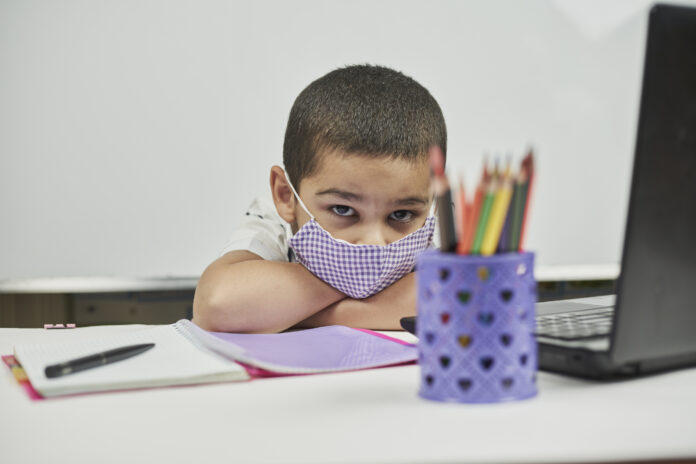President Trump approved the use of grants to help cover the costs of in-person education, including enrollment in private schools, allowing parents to get their children back in classrooms.
Trump’s December 28 executive order allows states to use Community Service Block Grants (CSBG) to give emergency K-12 scholarships to disadvantaged children who have been locked out of public schools due to the pandemic. The grants can cover a multitude of schooling options, such as private school, homeschooling, micro-schooling, learning-pods, special education services, or tutoring.
“All families should be empowered to make the decision that is right for their own circumstance,” Trump stated in a press release.
In the $900 billion COVID relief bill, Congress provided $2.75 billion in funds to private K-12 schools ($54.3 billion to public schools) but prohibited the private school money from going directly to families. CSBG is normally distributed through organizations that help low-income families but this is the first time it can be used for private school tuition. In fiscal year 2020, CSBG funds totaled nearly $1.7 billion.
Lockdowns and Child Development
Lockdowns and school closures have adversely impacted student achievement, especially among special needs and low-income students.
The executive order cites a variety of research, including one projection that if classes don’t resume by January 2021, students from low-income households will lose over one year of learning and suffer between $61,000 to $82,000 in lifetime earnings, the equivalent of a full year of full-time work.
In the months following the outbreak of COVID-19, one study by Renaissance found that math scores, among five million students assessed, fell seven percentile points from Fall of 2019 to Fall of 2020. Additionally, the study found that the difference was more pronounced for students of color, those in high poverty populations, those who attend public school, and those living in rural or small towns.
In a survey conducted by the Center for Reinventing Public Education, Black and Latinx students reported greater obstacles to their virtual learning than their peers, resulting in depression, stress, and anxiety. Record-high numbers of failing grades and absenteeism were also reported.
Ashley Bateman (bateman.ae@googlemail.com) writes from Alexandria, Virginia.





















